Want your cat to stay playful, healthy, and full of purr-sonality?
Want to keep your whiskered buddy purring, playful, and healthy for years to come? Nutritional Supplements for Cats can help—but only when you choose wisely. Below you’ll find 15 quick‑hit facts that turn supplement confusion into clarity, all served up in a way you won’t need any supplemental info.
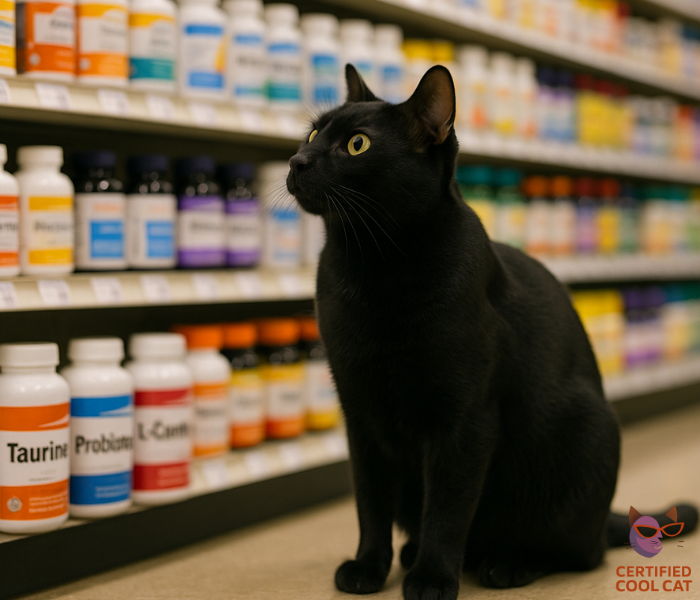
If you want your cat to stay playful, shiny-coated, and thriving into their senior years, supplements can help—but only if you pick the right ones. Here’s everything you need to know.
1. A Balanced Diet Covers Most Bases
Most healthy cats thrive on commercial food that follows AAFCO nutrient profiles for felines. If the bag or can shows that seal, your cat likely gets every vitamin and mineral required. Supplements really shine when:
- Your cat is a senior
- There’s a chronic illness involved
- You feed a homemade or raw diet
- Fluffy is bouncing back from surgery or sickness
For everyone else, extra pills may offer little more than an empty treat.
2. Targeted Support Now Beats “One‑Size” Multis
Cat parents are swapping broad multivitamins for condition‑specific formulas. Data shows multivitamin sales crashed by over 50 %, while calming chews exploded more than 1,700 % in five years. The takeaway? People want solutions, not shotgun approaches. Pick a supplement that fixes a real, vet‑confirmed issue rather than piling on generic mixes “just because.”
3. Your Vet Is Your Co‑Pilot

Never start a supplement without a quick chat with your veterinarian. They can:
- Spot true deficiencies through bloodwork
- Recommend safe, evidence‑backed brands (look for the NASC seal)
- Dose tiny bodies correctly—many labels assume a 10‑pound “average” cat, while your kitty might be half that size
Skipping this step risks drug interactions, tummy troubles, or wasted money.
4. Omega‑3s Do Far More Than Add Shine
EPA and DHA, the superstar fatty acids from fish oil, do a little happy dance inside your cat’s cells. They can:
- Calm itchy, inflamed skin
- Lube stiff joints
- Support heart and kidney function
- Keep aging brains bright
Dry kibble rarely packs enough of these oils, so your vet might green‑light a marine‑based topper or capsule.
Some links on CertifiedCoolCat.com are affiliate links, meaning I may earn a commission—at no extra cost to you. I only recommend products I trust for happy, healthy cats. As an Amazon Associate, I earn from qualifying purchases.

Vet Recommended
Preferred Use? Crumble into moist food and then mix well
Voila! 1 Capsule a day keeps your felines brain bright
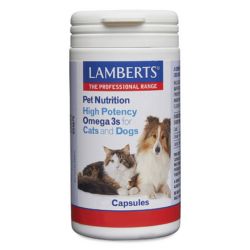
5. Glucosamine + Chondroitin Soothe Senior Joints
These two compounds are like WD‑40 for creaky knees. Together they:
- Boost lubrication
- Slow cartilage breakdown
- Encourage smoother, pain‑free movement
Studies show that even grumpy elder cats jump higher after eight to twelve weeks of steady dosing.
6. Probiotics and Prebiotics Keep the Gut in Tune
Healthy gut bacteria equal happy cats. Probiotics add live “good” microbes, while prebiotics feed them. The duo can:
- Reduce hairball frequency
- Ease diarrhea tied to stress or antibiotics
- Strengthen immune defenses
A favorite among vets is Purina’s FortiFlora, a single‑packet sprinkle cats rarely refuse.
7. Antioxidants Fight Brain Fog
Free radicals don’t just rust metal; they also age brain and body cells. Vitamin E, beta‑carotene, and coenzyme Q10 mop up those radicals. Benefits often include:
- Slower cognitive decline in seniors
- Fewer infection flare‑ups
- Better overall vitality
Think of antioxidants as your cat’s internal rust‑proof coating.
8. Taurine Is Non‑Negotiable for Homemade Diets
Cats can’t make their own taurine, the amino acid that keeps eyes sharp and hearts pumping. Commercial food adds it automatically, but home chefs must supplement. Deficiency leads to blindness and heart failure—serious stuff. Powdered taurine is inexpensive, simple to mix in, and life‑saving.
9. L‑Carnitine Helps Chubby Cats Trim Down
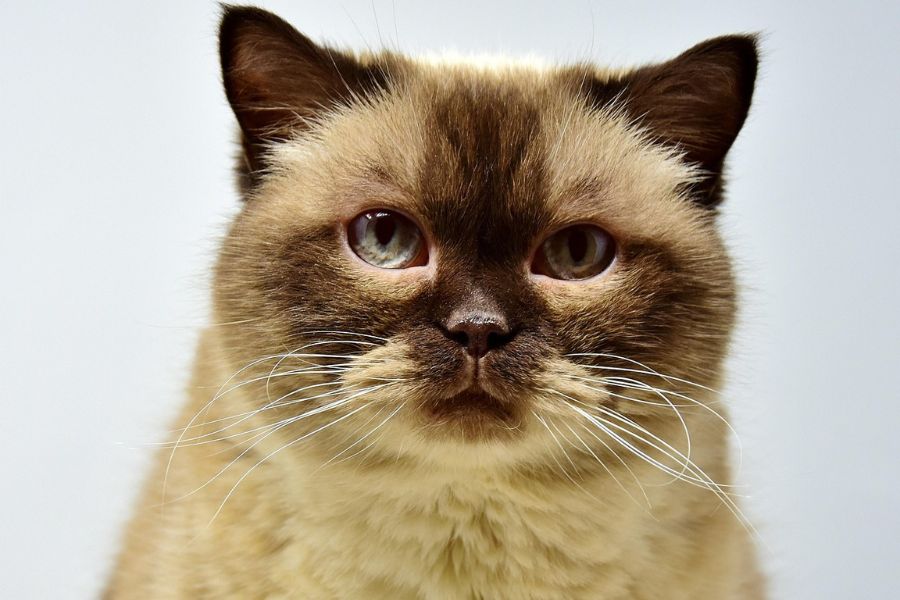
Weight‑loss formulas often include L‑carnitine because it shuttles fat into cells to burn as energy. Added perks:
- Preserves lean muscle during dieting
- May boost energy for play sessions that shed more pounds
Always pair it with portion control and gentle exercise for safe slimming.
10. B‑Vitamin Complex Powers Brain, Gut, and Skin
The B‑team (B12, thiamine, niacin, biotin, and friends) helps every cell make energy. Signs of low B‑vitamins range from dull fur to cranky digestion. Your vet might suggest a B‑complex boost for:
- Chronic GI disease
- Nerve issues
- Poor coat quality
Many cats accept flavored liquid drops over food.
11. Arginine and Nucleotides Pump Up Immunity
Stress, surgery, or infection can knock your cat’s defenses down. Arginine revs up immune cells, while nucleotides act as cellular “building blocks” for repair. Short‑term dosing often helps shelter rescues adjust to new homes or aids recovery after dental work.
12. Match Supplement to Symptom—A Quick Cheat Sheet
| Health Need | Helpful Extras |
|---|---|
| Dry skin & coat | Omega‑3s, Vitamin E |
| Stiff joints | Glucosamine, Chondroitin, Omega‑3s |
| Digestive woes | Probiotics, Prebiotics, B‑complex |
| Weak immunity | Antioxidants, Arginine |
| Senior cognition | Omega‑3s, B‑complex, Antioxidants |
| Weight control | L‑Carnitine, Taurine |
Print, pin to the fridge, and discuss with your vet before buying.
13. Shop Like a Pro: Quality Counts
All supplements are not created equal. Follow these rules to dodge duds:
- Look for third‑party testing (NASC, USP, or ConsumerLab logos)
- Avoid products from anonymous marketplace sellers
- Choose brands that publish batch numbers and contact info
If a company hides behind vague labels, your wallet—and your cat—deserve better.
14. Red Flags When Starting Something New
Keep a close eye during the first week. Call your vet if you see:
- Vomiting or runny stool
- Loss of appetite
- Lethargy, hiding, or odd behavior
Most side effects fade once you stop the culprit, but quick action keeps minor issues from snowballing.
15. Bella’s Comeback Story
My 14‑year‑old diva, Bella, went from couch potato to window‑perch acrobat in six weeks. The secret? Vet‑approved fish oil plus a joint chew with glucosamine. Her coat gleams, her sass level is off the charts, and she’s back to smacking the dog with her tail—proof that the right supplement plan can add pep to golden years.
Final Word: Smart Supplements, Happy Cats
Do:
- Schedule a vet chat before adding anything new
- Pick a single, targeted supplement for each need
- Check packages for third‑party seals and clear dosing
Don’t:
- Toss a generic multivitamin in the cart “just in case”
- Layer multiple products without professional guidance
- Skip follow‑up exams if problems persist
With thoughtful care, your feline friend will stay curious, agile, and full of cattitude—no matter their age.
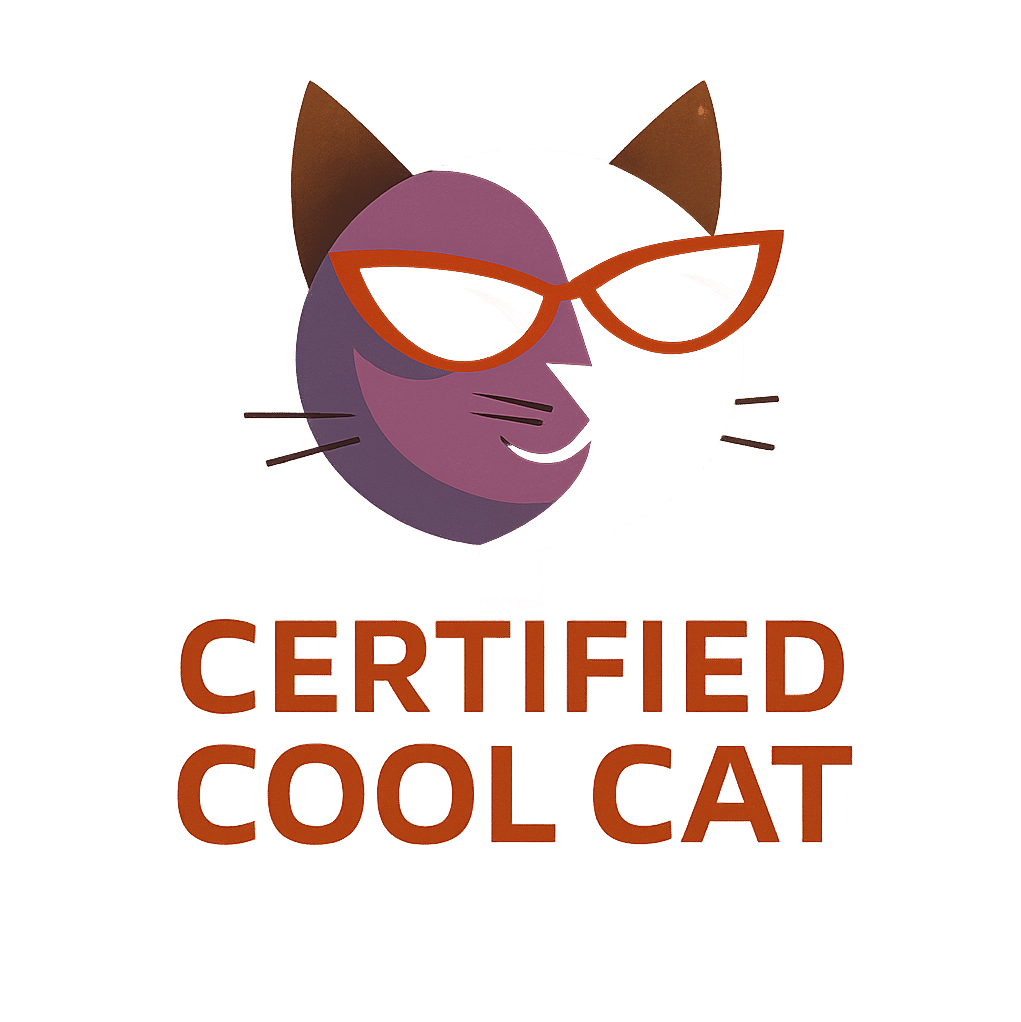
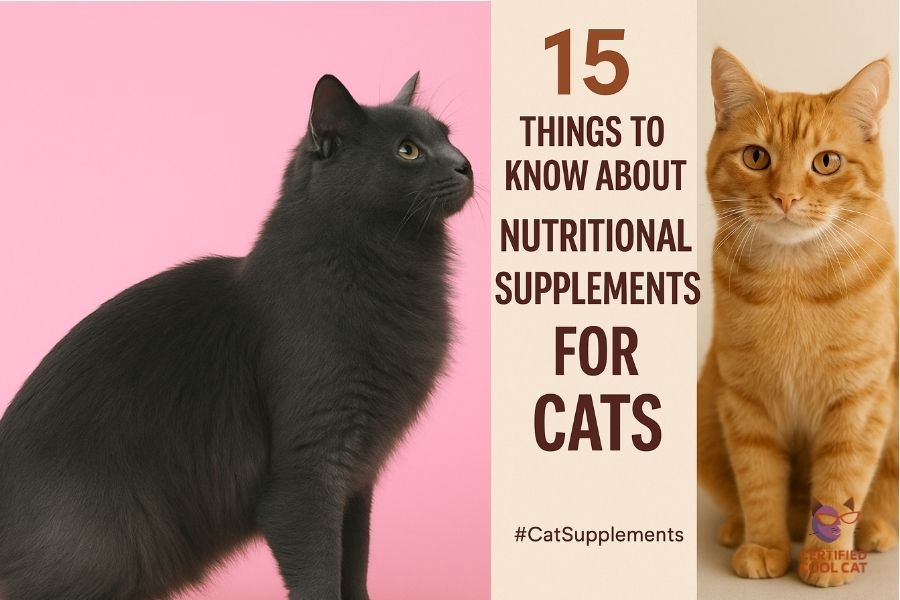
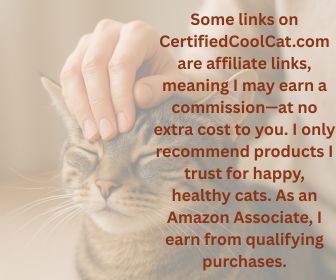


I’ve always been cautious about giving my cats any kind of supplement because it feels like a delicate balance between helping their health and accidentally overdoing it. Reading this made me think more about how different cats might have unique nutritional needs depending on age or activity level. Have you found that certain types of supplements, like probiotics or omega-3s, tend to be safer or more universally beneficial? I also wonder how often you recommend consulting a vet before introducing a new supplement, especially for cats with existing health issues. From my experience, even something as simple as a multivitamin seemed to make a difference in my senior cat’s energy levels, but I’m always hesitant without professional guidance.
Hey there — thanks for the thoughtful comment!
It’s definitely a good idea to give “paws” to the idea of giving your cat supplements unless a vet professional recommends it so good for you.
You’re spot-on that supplements walk a fine line between “helpful boost” and “too much of a good thing.” Every cat’s baseline is different, so one size never fits all.
Are any supplements almost always “safe”?
Omega-3 fish oils (EPA & DHA) tend to be the crowd-pleaser. Most commercial diets are light on these fatty acids, so adding a vet-approved fish-oil capsule or liquid usually supports skin, coat, joints, and even brain health with very low risk.
Probiotics are another gentle option because they stay in the gut and rarely interact with meds. I lean on single-strain powders like FortiFlora for day-to-day tummy tune-ups or multi-strain blends for longer-term gut support.
That said, even these “universal helpers” can cause runny stools or fish-breath burps in sensitive kitties, so starting slow (½ dose for a week) is never a bad idea.
How often to loop in your vet?
Always if your cat already has a diagnosed condition, is on prescription food, or takes daily meds.
Usually if you’re dealing with seniors (10 + years), chronic GI issues, or you plan to stack more than one supplement.
At least once a year during the wellness check to review anything you’re giving, even if it’s “just” a probiotic.
Your experience with a multivitamin perking up your senior totally tracks. Older cats sometimes absorb nutrients less efficiently, so a well-formulated senior blend can fill little gaps—just make sure it carries an NASC or similar quality seal.
Quick sanity checklist before hitting “add to cart”:
Clear goal? (e.g., joint comfort, hairball help)
Vet thumbs-up? (even a quick email counts)
Third-party tested? (look for NASC/USP logos)
Start low, go slow and monitor litter-box results, appetite, and energy for two weeks.
Hope that demystifies things a bit! Feel free to circle back with what you try next—my diva cat Bella is always looking for new ways to one-up my advice.
Stay curious and keep those whiskers twitching,
Jason | Certified Cool Cat